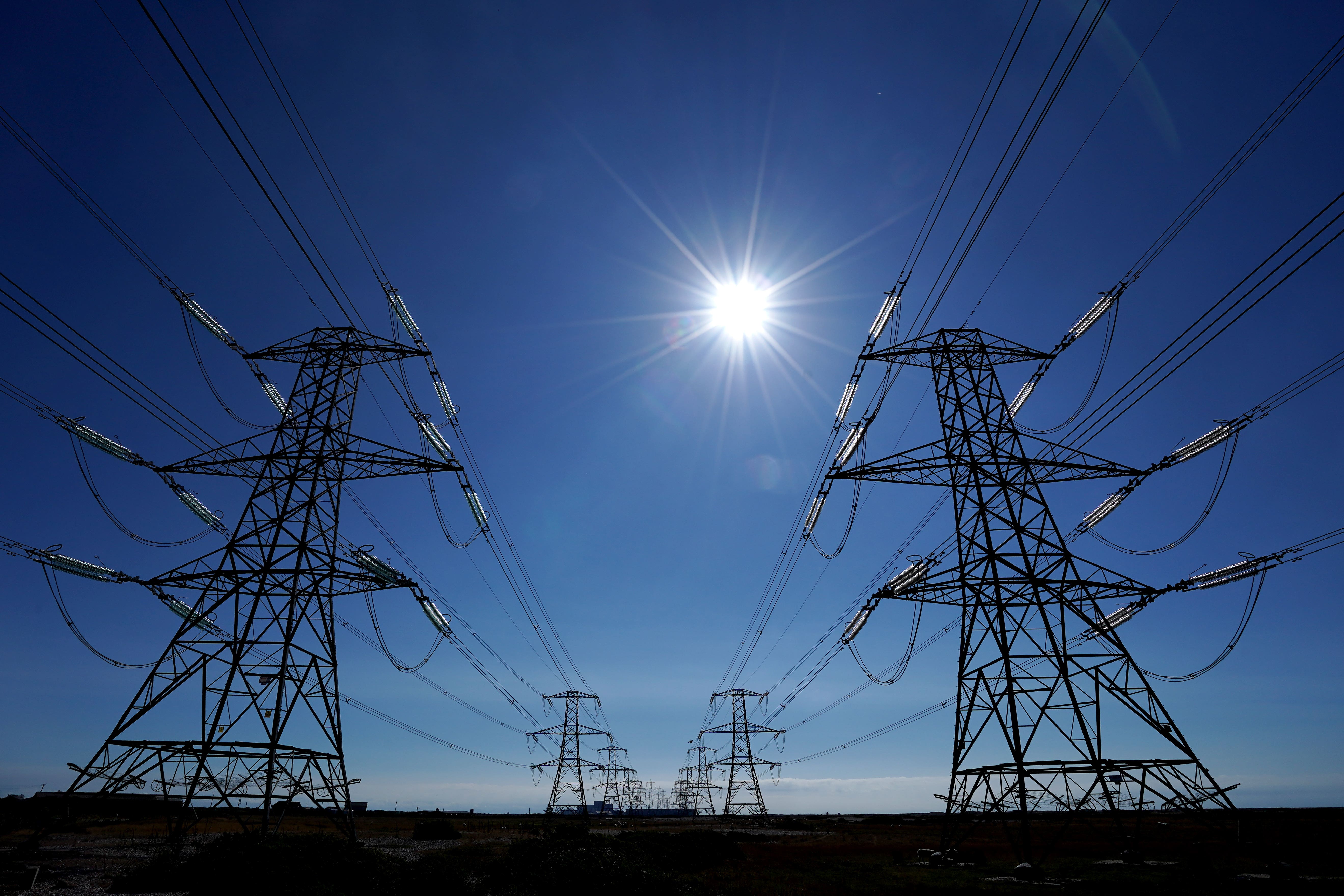Lower risk of Britain losing power this winter than last, says grid operator
The National Electricity System Operator said the UK’s power supply situation has ‘improved from previous winters’.

Your support helps us to tell the story
From reproductive rights to climate change to Big Tech, The Independent is on the ground when the story is developing. Whether it's investigating the financials of Elon Musk's pro-Trump PAC or producing our latest documentary, 'The A Word', which shines a light on the American women fighting for reproductive rights, we know how important it is to parse out the facts from the messaging.
At such a critical moment in US history, we need reporters on the ground. Your donation allows us to keep sending journalists to speak to both sides of the story.
The Independent is trusted by Americans across the entire political spectrum. And unlike many other quality news outlets, we choose not to lock Americans out of our reporting and analysis with paywalls. We believe quality journalism should be available to everyone, paid for by those who can afford it.
Your support makes all the difference.Britain is less likely to lose power this winter than last year, according to the public body responsible for keeping the lights on.
The National Electricity System Operator (Neso) said on Tuesday that it expects power plants, wind farms and other generation methods to be able to provide more than enough power to meet demand.
In its winter outlook, Neso said the grid would have an average margin – the difference between supply of electricity and demand for it – of 5.2 gigawatts (GW) this coming winter, higher than 4.4 GW last year.
While our margin assessment has improved from previous winters, we are continuing to monitor risks and uncertainties and, if necessary, will take steps to build resilience
The increased margins are in part because of improved capacity, thanks to a new 765km high-voltage cable that connects the UK’s electricity network with Denmark.
The cable, called an interconnector, is known as the Viking Link, and started transporting wind power between the two countries in December 2023.
Britain also has more battery storage capacity than this time last year, and more generation capacity connected to the grid.
Those factors “more than offset” closures of some power plants including the UK’s last coal-fired plant at Ratcliffe-on-Soar, Neso said.
The public body added that Britain will be a net importer of electricity from mainland Europe this year, and that it would use “close cooperation” between European system operators to secure the power supply.
Craig Dyke, director of system operations at Neso, said the grid may still see “tight days,” but that Neso would use tools such as system notices to navigate them.
As we approach winter, we have confidence in the country’s diversity of supply options and the capability of our network to meet peak demand
System notices are a routine practice. They happen when the operator cannot match supply and demand through the normal mechanisms, and sends a formal message to the electricity market to let companies know what it needs.
Mr Dyke said: “While our margin assessment has improved from previous winters, we are continuing to monitor risks and uncertainties and, if necessary, will take steps to build resilience.”
Neso also said it would ramp up the use of a scheme where people can save money by using less electricity during busy times, known as the Demand Flexibility Service (DFS).
The DFS is designed to help avoid shortages by encouraging consumers to use less power at peak times – usually in the evenings.
In return, customers who are signed up to the scheme and who have smart meters can save money.
Mr Dyke said the DFS “will sit in the same merit order as per all our other actions”, adding that the use of it last year “went down well”.
Separately, National Gas, the company that operates the gas system, said demand will remain similar to last year.
National Gas said Britain is “well-positioned” to respond to forecasted demand, with sources ranging from the UK’s own supply, imports of liquefied natural gas from Norway and interconnectors with Belgium and the Netherlands.
Ian Radley, system operations director at National Gas, said: “As we approach winter, we have confidence in the country’s diversity of supply options and the capability of our network to meet peak demand.”